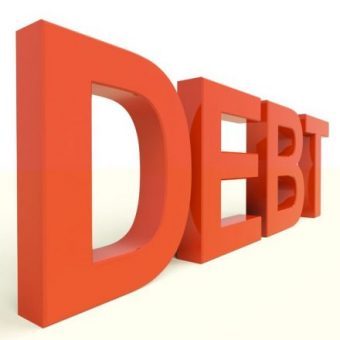Unlike a Chapter 7, a Chapter 13 bankruptcy does not immediately wipe out all the debts that the court can. Instead, a Chapter 13 bankruptcy creates a plan for paying back a percentage, if not all, of what you owe your creditors. This is done by establishing your monthly income and your reasonable monthly expenses, including things like groceries, medicine, fuel, utilities, and other such bills. The expenses subtract from your income, which leaves a monthly disposable income. That figure determines how much you can afford to pay towards your bankruptcy plan each month.
Categories of Creditors
The plan itself is a document your attorney prepares. It categorizes your creditors into three categories: secured, priority, and unsecured. Secured creditors are creditors who have a security interest in a particular piece of property, like a car loan. Priority creditors are those who the law says should receive payment before other creditors. These generally include past due child support, back taxes, and similar government fees and fines.
Unsecured creditors are everyone else. This includes credit cards, medical bills, pay day loans, and even balances due after events like a repossession or foreclosure. The plan figures out what your monthly payment will be, and then applies that to your secured and priority creditors each month until they are paid in full. This may vary. It could take just a few months or the vast majority of the 60 month time limit. If there are months left over, then the unsecured creditors get paid.
Read About other BANKRUPTCY OPTIONS IN ROGERS COUNTY.
Example of Chapter 13 Filing
For example, suppose you owe $75,000. $25,000 of that amount is secured by two cars and you owe $10,000 in back taxes. Your plan payment is $1100 per month. For the first thirty five months, the trustee will pay $1000 per month to your car loans and back taxes, until they are at a zero balance. Once they are paid, the trustee will pay out $1000 per month to be split among all your unsecured creditors for twenty five months, until the plan completes at 60 months. At that point, anything you still owe to the unsecured creditors wipes away.
The above example does not include things like interest rates and the percentage the trustee may keep. Now, you might be asking, “well, if I’m just going to pay everyone back, what’s the point of filing bankruptcy at all?” The answer to that depends on your individual situation. One common reason to file Chapter 13 as opposed to just making regular payments is convenience. Filing a Chapter 13 consolidates all of your payments (even your mortgage payment in certain districts) into one monthly payment. You do not have to worry about paying back potentially dozens of creditors each month. You make one payment to one place and everything else falls in place.
Other Reasons to File
Another reason to file is that even if you are theoretically paying off your creditors in full, you may still save significant money over just paying them as normal. There are two reasons for this. First, creditors have to actually confirm with the court that have an entitlement to the money. If a creditor doesn’t file a proof of claim in a timely fashion, they do not receive payment. Neither are they dischargeable at the end. Second, interest rates tend to receive a cap in a Chapter 13. For instance, if you have a car loan with a 10% or 12% interest rate, the bankruptcy court will likely force the creditor to accept 5% instead, saving you money.
Finally, in the right circumstances, Chapter 13 bankruptcy can save your home. If you are facing foreclosure due to non-payment of your mortgage, it may work out that the Chapter 13 plan can pay back all of your past due amounts. This can happen while you make your normal monthly payments. This means that by the end of the plan, you are current on your mortgage. Thus it eliminates the need for the bank to foreclose.
Chapter 13 Bankruptcy Help in Rogers County
If you make a good living but are still in debt, Chapter 13 bankruptcy may be right for you. An experienced bankruptcy attorney can help you determine if your situation is a good candidate for Chapter 13. If you need relief, don’t wait. Contact your local bankruptcy attorney today at 918.379.4872!

